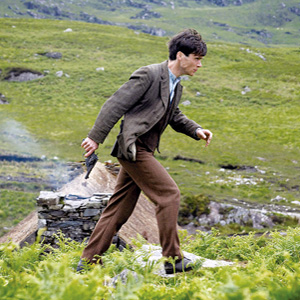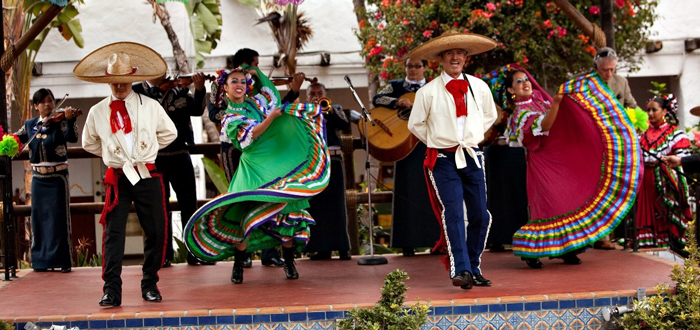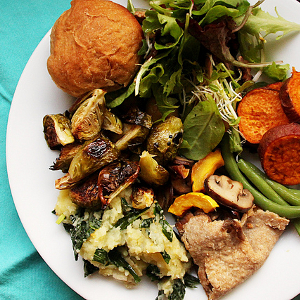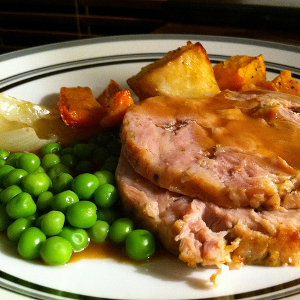I hope someday to see the old stones and meet the old sods, and gape at the Neolithic tombs that were ancient when Stonehenge was a suckling, but in the meantime there’s always the cinema for a received idea of what it’s like in Eire.
Those who prefer green cardboard hats and foam shillelaghs can watch gentler movies like Once, Ondine, The Commitments, The Quiet Man or The Secret of Kells. People preferring tougher St. Patrick’s fare are guided to the below:
Now on Netflix, Father Ted is a raucous TV comedy from the midБ90s set in Craggy Island, a bereft corner where doddering or inept priests while away their golden years. There, Father Ted (comedy great Dermot Morgan, dead at 45) plans a way out of exile. A favorite character: the degenerate divine Father Jack (Frank Kelly) who has just enough marbles left to bellow for “Drink!” Of Jack, one could say what Flann O’Brien always said of similar wrecks in The Poor Mouth: “His like will never be seen again.”
Neil Jordan is likely Ireland’s most gifted film director, and The Butcher Boy (1997) represents Jordan at the top of his craft. Based on Patrick McCabe’s merry but bloodcurdling history of 11-year-old Frankie the Bad Bastard (the amazing Eamonn Owens), a larval psycho whose misdeeds are compared and contrasted with the greater sociopathy of the Cuban Missile Crisis, scads of witless “bony-arsed bogmen” loitering about and a local priest (Milo O’Shea) who hankers for boys. Special guest star: the Blessed Virgin Mary (Sinead O’Connor).
Speaking of blasphemy, the Vatican denounced The Magdalene Sisters (2002) as “a rancorous provocation”—that’s a blurb you couldn’t buy for money. Some 30,000 women were enslaved—there’s no other word for it—in Dublin’s Magdalene Asylums between 1848 and 1996. Peter Mullan’s melodrama-avoiding fictionalization of four girls’ histories is highlighted by the acting of Nora-Jane Noone—whose Bernadette is something like the resourceful women in Warner Bros.’ old pre-Code exposes of the urban rackets.
Who hasn’t wanted to greet news of an unplanned, unwedded pregnancy with the words heard in The Snapper (1993): “Well done, you daft cow!” Stephen Frears’ witty adaptation of Roddy Doyle’s Barrytown novel is a keen, salty family drama. Even Madonna’s then-inescapable “Papa Don’t Preach” sounds choice here.
Downton Abbey’s Maggie Smith was astonishing in 1987’s The Lonely Passion of Judith Hearne—but few Americans braved that kiss-of-death title. The film is a beautifully wrought tragedy of a respectable, narrow-minded closet alcoholic in Belfast in the late 1940s. Bob Hoskins also excels as the brother of Smith’s landlady—a brash go-getter who spent enough time in the States to pick up bad manners, if not any real money. Also startling: Ian McNeice as an obese, scheming fraud of a poet.
Ken Loach’s The Wind That Shakes the Barley (2006) is, along with Paul Greengrass’ forceful debut Bloody Sunday, one of the two best films for explaining Irish history to a foreigner. (Michael Collins, intended as a two-part film but forced into one episode, will just confuse outsiders utterly.)
Loach stages the Irish Civil War as familiar strife between liberals and radicals. Cool, tragic, small-scale and focused, the film honors the bitterness of a rebel’s life, so romanticized on the walls of American Irish bars. Here is a one-stop lesson in what the Irish sacrificed to gain their independence.

 Thousands Honor Slain Santa Cruz Police Officers
Thousands Honor Slain Santa Cruz Police Officers  SJ Q&A: Jim Stump, Los Gatos Brewing Co.
SJ Q&A: Jim Stump, Los Gatos Brewing Co. 









